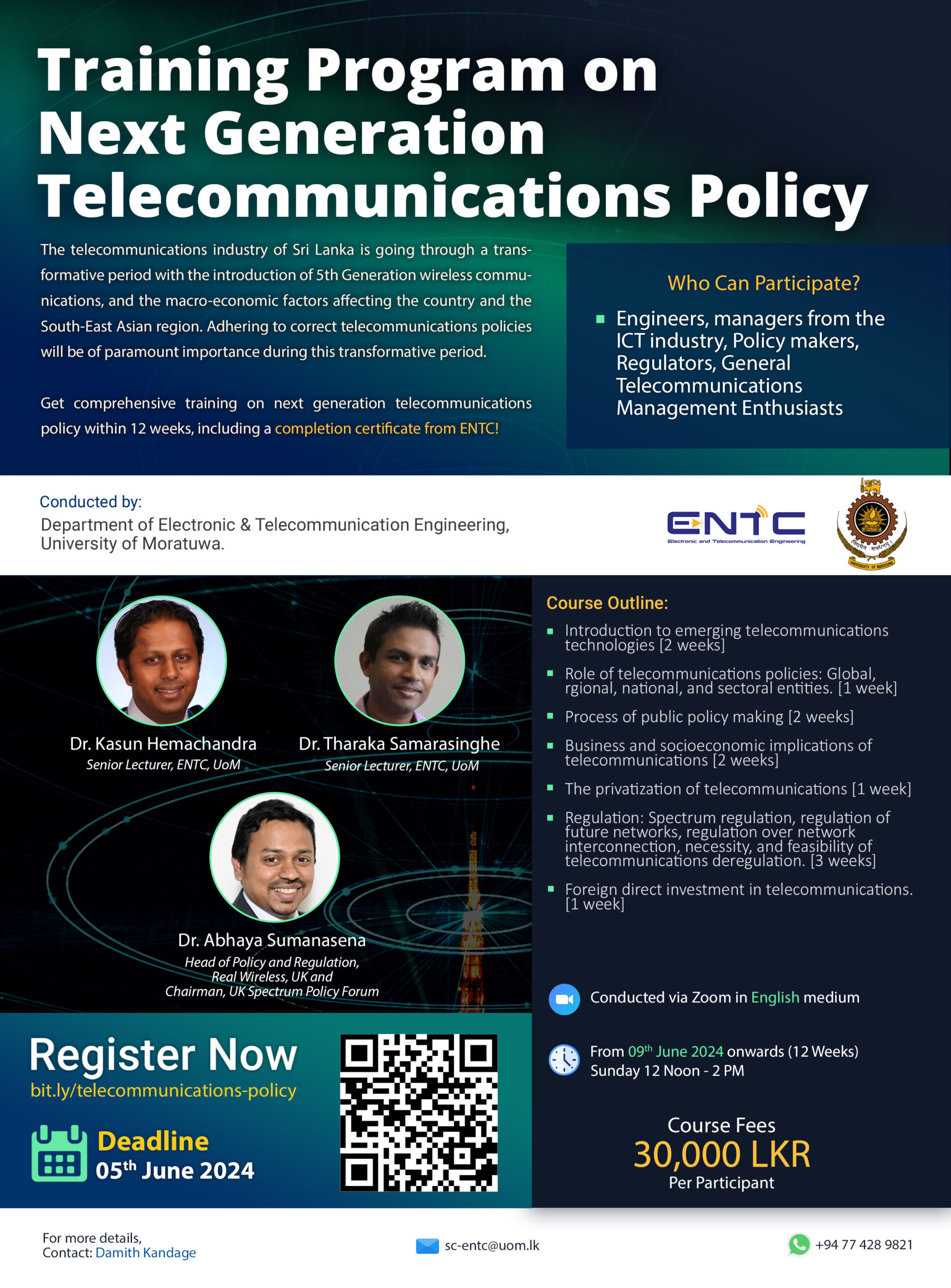
In today’s interconnected world, telecommunications policy plays a crucial role in shaping how we communicate, connect, and interact. From regulating spectrum assignments to promoting competition among service providers, telecommunications policy influences the accessibility, affordability, and quality of communication services for individuals, businesses, and societies.
The telecommunications industry of Sri Lanka is going through a transformative period with the introduction of 5th Generation wireless communications, and the macro-economic factors affecting the country and the South-East Asian region. Adhering to correct telecommunications policies will be of paramount importance during this transformative period.
The core objectives are:
- Understanding the emerging technologies in Telecommunications.
- Evaluate the importance of telecom/ICT policy in Sri Lanka, and the process of successful policy development.
- Assess ICT policies in other countries through case studies.
- Identify the current telecommunication related policy issues in Sri Lanka and develop policy directives.
- Evaluate investment proposals in telecommunications.
Course outline:
- Introduction to emerging telecommunications technologies [2 weeks]
- Role of telecommunications policies: Global, regional, national, and sectoral entities. [1 week]
- Process of public policy making [2 weeks]
- Business and socioeconomic implications of telecommunications [2 weeks]
- The privatization of telecommunications [1 week]
- Regulation: Spectrum regulation, regulation of future networks, regulation over network interconnection, necessity, and feasibility of telecommunications deregulation. [3 weeks]
- Foreign direct investment in telecommunications. [1 week]

